Zig Zag Claybourne Author Interview: Flipping the Bird and Finding Joy while Writing Afro Puffs are the Antennae of the Universe
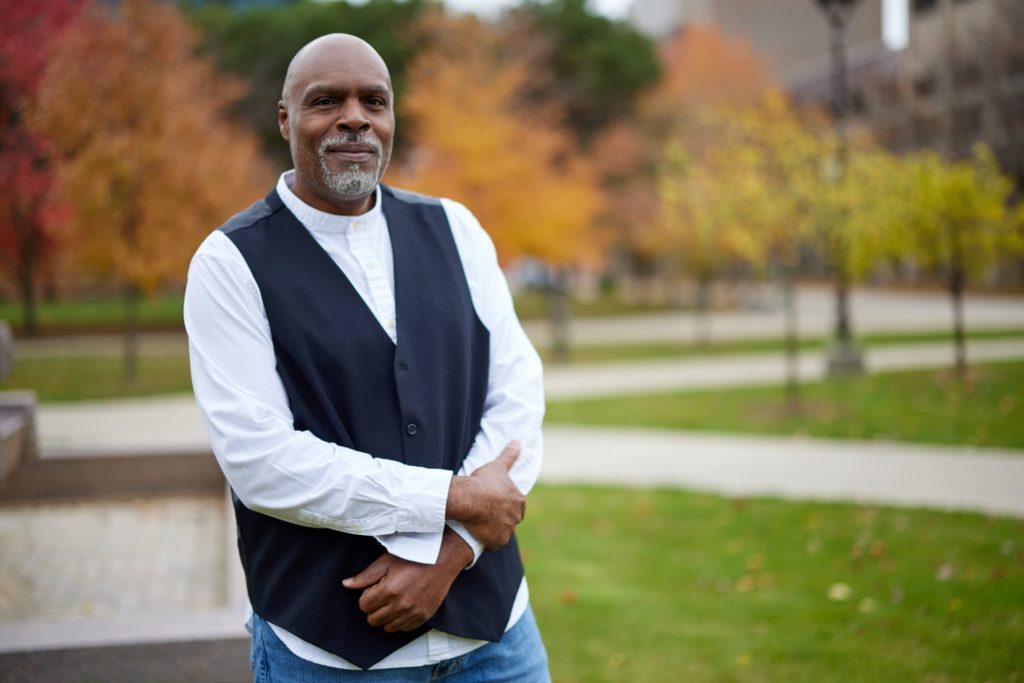
Zig Zag Claybourne is infectiously joyous on the page and in real life. He’s a comfort to read but not everything he writes is comforting. There’s no seeing the light without being in the dark, but you can trust Claybourne to make you laugh while you’re there. He’s a chill-seeking truth-slinger who’ll shove you into action-packed absurdity then somehow make you feel…cozy.
Afro Puffs are the Antennae of the Universe is the sort of sci-fi that could get Prince’s sexyass ghost to slink outta the celestial void to host a book club. It’s the second, standalone installment in the Brothers Jetstream series. All Captain Desiree Quicho wants is a day off. Maybe a barbeque. But somebody’s got to save the universe. Again. This time from an immoral billionaire and a mega-corporation, each wanting power but neither wanting the responsibilities that come with it.
Here’s the hella fun phone chat Black Gate had with Zig Zag Claybourne about writing Afro Puffs and taking time in 2020 to find joy.
PATTY TEMPLETON: What kind of feelings do you want to invoke in your readers with Afro Puffs are the Antenna of the Universe?
ZIG ZAG CLAYBOURNE: Joy, rage, defiance, more joy, and fun. This book is definitely one that comes out of the gate with both middle fingers raised up high. I like that about it.
Who’s it flipping the bird at?
To the fan bois out there who are constantly being asses to everybody else. To the economic systems that treat people like they’re paper assets. This is a book for people saying enough is enough. We’re done with all that.
Why’d you need to write this book this year?
In a nutshell… America.
The dumpster fires. People’s spirits are just crushed. I wanted this book out. I could have held on to it for a little while, but it seemed like we needed it, which sounds really, really full of myself, but it’s not, it’s that every book I’ve read this year that uplifted me, I’m so glad the writer did that, or even if it’s a blog, anything. They put out some of my little dumpster fires and that was a welcome blessing. So I wanted to put Puffs out before the year ended, maybe put a fire out for somebody else, particularly after the last 4 years. Take fresh energy into 2021.
Your writing is a consistent joy-riot. I can tell you had so much fun writing this. How do you seek and express joy in your fiction?
Mainly through the characters doing things that are unexpected. That way, I stay surprised. I’m writing it, and the characters are like, “Okay, this is what I’m gonna do now.” It’s almost free form like a jazz thing with me, the characters, and the plot. Like, “What can happen next?” Then I go for it. I know a lot of writers don’t like that approach, but I love doing it. I love surprising myself when I’m writing or throwing something in intentionally to make me turn a different way.
So you don’t outline before writing or give yourself plot guide posts?
I used to. I used to do that and then I stopped. Last time I did was with By All Our Violent Guides. Had it thought out, had diagrams and everything. When I did Neon Lights, I threw everything out and went on the gut. I’ve been doing it that way ever since.
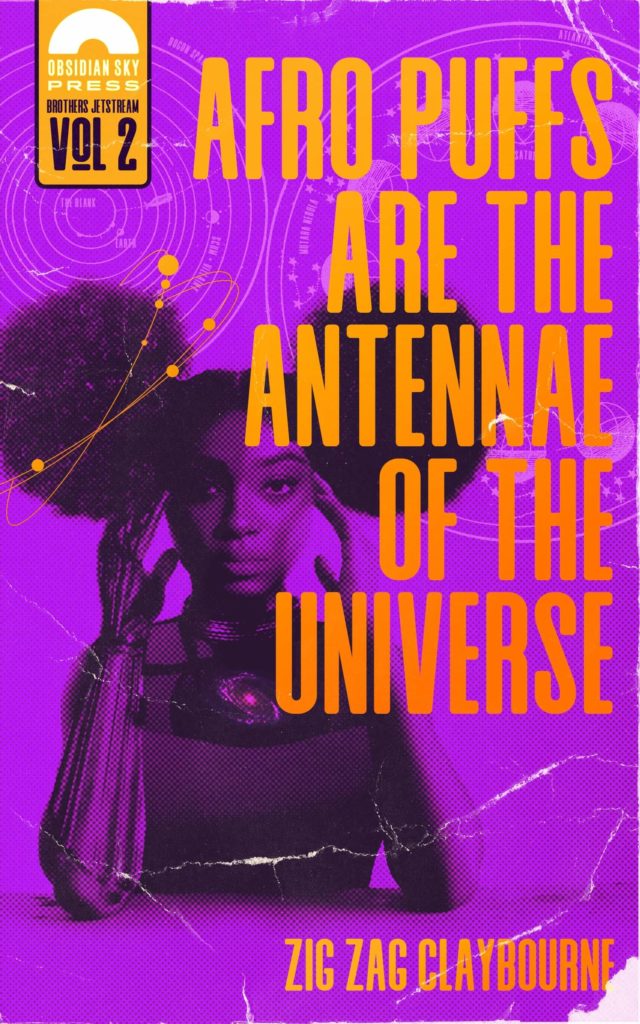
A lot of this book was written this year. I didn’t even know most of the time what the hell I was writing. I would wake up and it was almost like automatic writing. I was so afraid that it was an incoherent mess, but the subconscious was doing its job. It was keeping things going where they needed to go. It isn’t as free-form as it seems. A lot of planning going on, but it’s subsurface for me.
There’s a balance in Puffs of quiet life and action. I love how it shows home lives being as interesting as fight scenes.
I think one of the most important parts of world building is finding that balance. Your heroes need a life outside of the mission. If you’re going to inject reality into world building, you gotta include that down time. Not everything is on fire all of the time. And even if it is, a lot of the mission can be figured out while you’re having breakfast.
I mean, some of my favorite scenes are when the ladies are either having breakfast or playing a game of cards. Moments of calm make your characters’ problems feel that much bigger.
Like when the crew helps build the captain’s house.
Yeah, I wanted that house building to be the tent pole for the book. I mean, because that’s what the story’s really about, you know? Home. The right to actual respite. Quicho’s pissed off that she keeps getting interrupted in the building of her house. She goes out to change the world because she wants quiet time. I love that little conceit – that you could go on a big sci-fi adventure based on somebody being pissed off.
Were you purposefully subverting sci-fi tropes in Puffs?
Yes, big time. I love putting tropes in the blender and seeing what I get away with.
There’s a specific trope of artificial intelligence turning evil…
I don’t want to give too much away, but usually when you have AI and science fiction, they tend to be evil. There’s a cold agenda. I completely flipped that around here. I mean, this AI, at one point, is wandering around trying to figure out how it can fix Twitter to make it a better experience.
I think if you’re going to have an AI that is that advanced, it’s not going to be interested in the things that we are interested in, like power and dominance. It’s going to see the systems in place, how they fit together, and how those systems are making the world a shithole. Why wouldn’t it say, “I’m gonna fix this. I can fix this. I have the ability to do that.”
There’s this balance of realism and absurdity in Puffs. It reminds me of the Hitchhiker’s Guide to the Galaxy and Buckaroo Banzai.
To me, life is absurd by itself. When I’m doing fiction, I like that little bit of absurdity in there, but grounded in some way. Not played off as a joke, but showing that our surroundings are absurd all the time if we stop and notice. In Puffs, it could be as simple as having a tiny cephalopod on a skateboard for one scene.
It’s like the watermelon scene from Buckaroo Banzai. It was a quick, throw-away scene of a watermelon in the background. Like, why is the watermelon there? They don’t stop to explain it. It’s just there.
That’s what I do with the absurdity. Sometimes you pop it in, and it’s a device to slow the heroes down. Suddenly, there’s something weird happening and the heroes don’t know why. The reader doesn’t know why. You don’t explain it. You leave it for the reader to ask, “What the hell was that all about?” when they’re done with the book. I love that.
Sometimes there’s redemption in your stories. When do you give a villain a second chance?
I think once a character is intentionally evil – when they know what they’ve done is harmful to someone and they persist with it – there’s no redemption from that. You don’t get that second chance.
But one thing I don’t care a lot for in fiction is when you’ve got the Big Bad. They’re there to be the Big Bad and all of the focus is on their evil plan. There’s very little given to the underlying why of it and the consequences of it. Not just for who they’re doing it to, but themselves as well. Evil affects us. Every bad thing we do as people, it affects us. I like my villains to be affected by what they’re doing.
I like to humanize villains in a way that is not condoning anything that they’re doing. It makes them a little more three-dimensional. Puffs is not a Western Shoot ‘em up where the heroes are gonna ride into town and kill the Big Bad. I can enjoy a story like that. I can’t write a story like that.
Captain Quicho’s ship isn’t gleaming and polished. It’s held together by grease and headscarves.
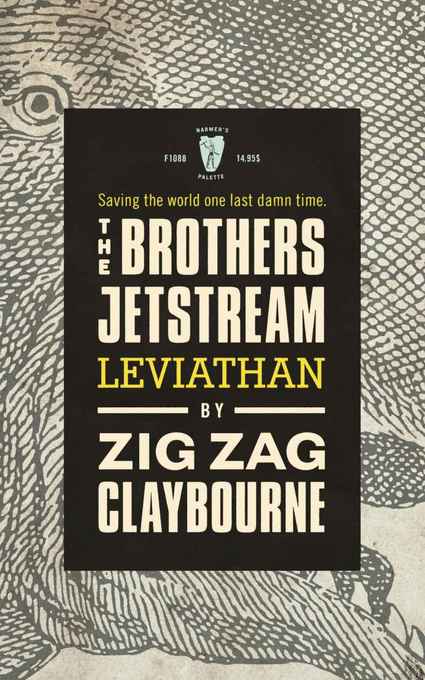
I like doing sci-fi that way because it shows the ingenuity of people. When you’ve got everything glossy, shiny, new and sparkling, it’s a story about the technology, the machines – the people might as well not even be there.
I love Star Trek, but there’s a lot of that in Star Trek. It’s way too sanitized. It doesn’t show me the resourcefulness of the characters. When I have my characters in space and one of the engineers uses a headscarf as a gasket, things like that give you insight into their lived lives. At the end of the day, when I’m writing, I hope I’m writing about humanity’s resourcefulness. Shit goes wrong all the time with us, but we wind up still planting gardens.
It also gets into the economics of the world and the people inhabiting it, if a ship doesn’t have a near-magical replicator or a huge storeroom of parts to draw from.
They’re very much just a working class group of folks who say, “Let’s come together and get stuff done.” Socialism gets thrown around as a terrifying word these days. It’s not. There’s a very strong socialist vein to Puffs and I’m not afraid to say it. It’s about a group of people working together towards something. That is in a lot of sci-fi. There aren’t a lot of sci-fi or adventure stories where the hero is all about achieving wealth. That’s never the end goal. It’s always about achieving something that makes the Universe better for somebody else.
Better world, better universe, more stable universe.
And the faith, you know? Having faith that we can create and create together.
Going way back to the start of our convo. We talked about joy. How do you cultivate joy in everyday life?
I’m sybaritic. Sensuous luxury, that’s me. I’m into music. Music going in one ear and swirling out the other. I focus in on the rhythm and it affects the rhythm of my thoughts. And, you know, anybody who follows me on social knows that I would do pretty much anything for a good slice of pie. That’s where I get my joy. Focusing on the five senses, at least a few times a day. Like most people, I have a hectic life. I don’t get to sit around and write and stare out the window for hours. It’s snatching time whenever I can.
This year, for everybody, was terrible. But the joy comes through knowing that I’m doing something that I like to do. I was just talking to a writer friend not too long ago. He’s struggling to write because he doesn’t have any joy in it. Come to find out, his mind is always on the finished product, on the intention of getting a sale. That, too often, kills joy for writers. I told him just write for the joy of it. Don’t think about when it’s done or what the market is. Just write. That’s probably the main place my joy comes from. When I’m writing, I’m not thinking, “Okay, is this book marketable?” Considering how my bank account cries whenever I check its balance, I know the answer to that question.
Do you think that you would still be a writer if you didn’t have as much music in your life as you do?
I know I wouldn’t. My writing is all about flow. I learned that flow from music.
There’s music all over this book. How do you want people to interact with it?
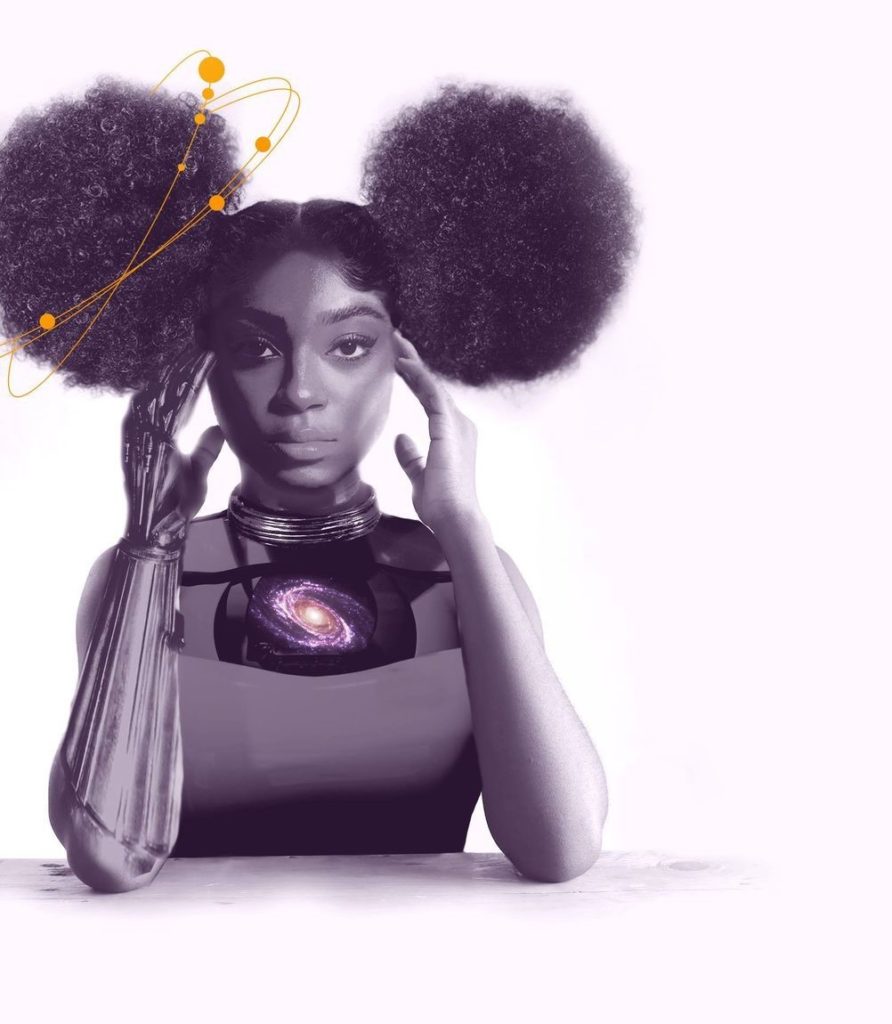
I’m hoping that it elicits memories in them. If I can be cliché, music is the universal language. Puffs is steeped in American music, but music travels. If you’re familiar with Parliament, which most people around the world kinda are, then when you see it in certain points in this book, it should strike a certain mood. The music I chose was music that I knew struck certain chords with people.
What about the playlist? Should folks listen to it before or after reading the book?
I would wait till after, especially if there are tracks that people aren’t familiar with at all. If I did my job right in the writing, even after reading it, when you hear the song, it’ll take you back to the section that I mentioned it in and you’ll get that that feeling. It’ll pop up.
Yeah, and sometimes I included stuff because it’s a jam I loved when I was growing up, so you need to know about this jam!
What else is important to you about Afro Puffs are the Antennae of the Universe?
The Black Girl Magic aspect of it. Even the cover image is very intentional – she’s looking at the reader with this eff-around-and-find-out-slash-above-it-all expression, like, “Yeah, I’m here and I’m not going anywhere.” That was a big part of the energy of the book. Especially in our sci-fi culture, where women – Black women – are considered marginalized, which is a word I hate. To me, it’s a violent term because to become marginalized means somebody is actively pushing you off the page, pushing you out of view, and that’s heinous. It’s a way of sanitizing violence against someone because you can say someone’s a marginalized group, and it makes it sound like they’re on the margins of their own volition when truly, they’re there because another group pushed them there. Having to face that. Still. To justify your existence. This book is very much two middle fingers to that. Justify this * waves middle fingers *.
The idea that we – women and Black people – are here, in genre, in the zeitgeist, in the world, and we have always been here; that’s why the book has a beat up look to the cover. It shows that in the era of pulp when it was said Black people and women weren’t interested in or creating sci-fi that we were always here and we were always creating. We’ve been having adventures, we’ve been exploring the world, we’ve been saving the universe. The cover is meant to evoke all of that.
And it’s also just a damn good cover.
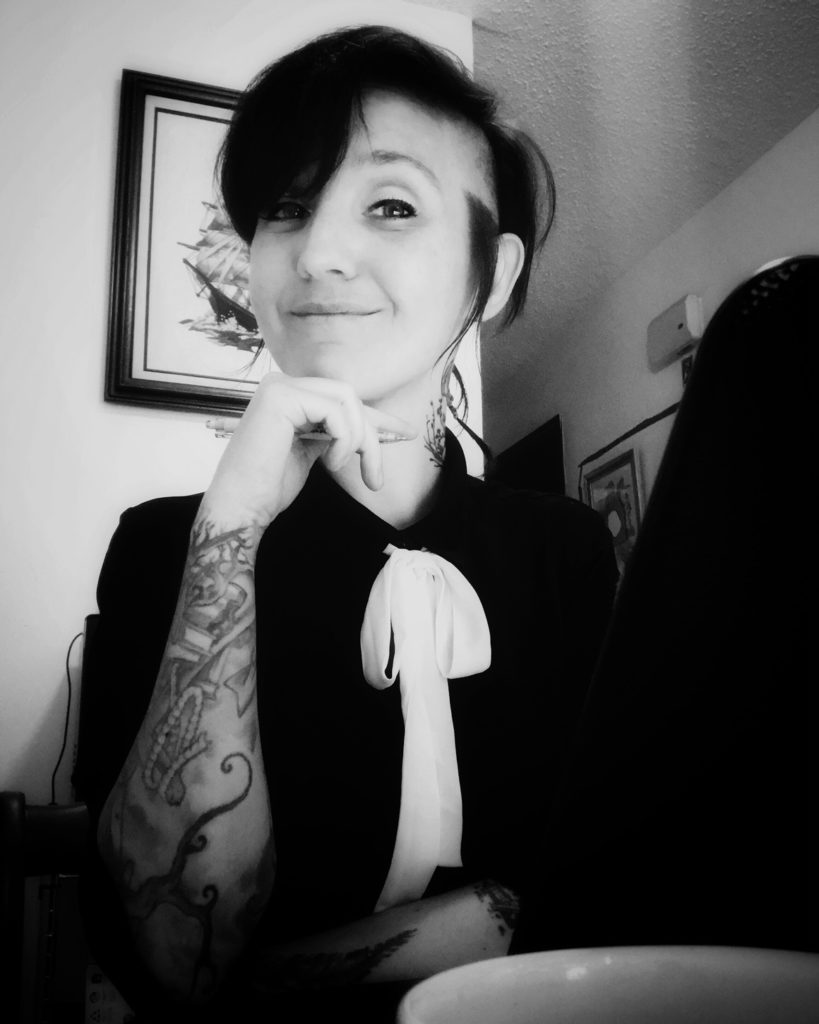
Patty Templeton is a writer, archivist, artist, and itinerant kitchen dancer. She is the author of the historical fantasy There is No Lovely End, a 2020 Library of Congress Jr. Fellow, and – ever since they met at a con 5+ years ago – a REALLY BIG FAN of Zig Zag Claybourne. She wants you to buy his Brothers Jetstream series. Here’s book one and book two.
Hi, do you still sell PDF back issues of the magazine?
I wrote to sales@blackgate.com, but the address seems dead.
Many thanks.
Lida Gossou
Hi Lisa,
Thanks for your comment. Sorry to hear you’re having trouble with our Sales address.
But I’m delighted to hear that you’re interested in Back Issues. I sent you a private email — happy to help!
Great interview.
I am enjoying reading this interview while enjoying listening to “The Boogie Down” radio show, hosted by Binky Griptite (guitarist and emcee of The Dap-Kings). Hmm, maybe I need this book more than I originally suspected.
Sorry, didn’t receive any message, even in the spam. Can you try again?
Many thanks.
Hi Lida,
I just resent my email to you. Please don’t hesitate to contact me directly at john@blackgate.com.